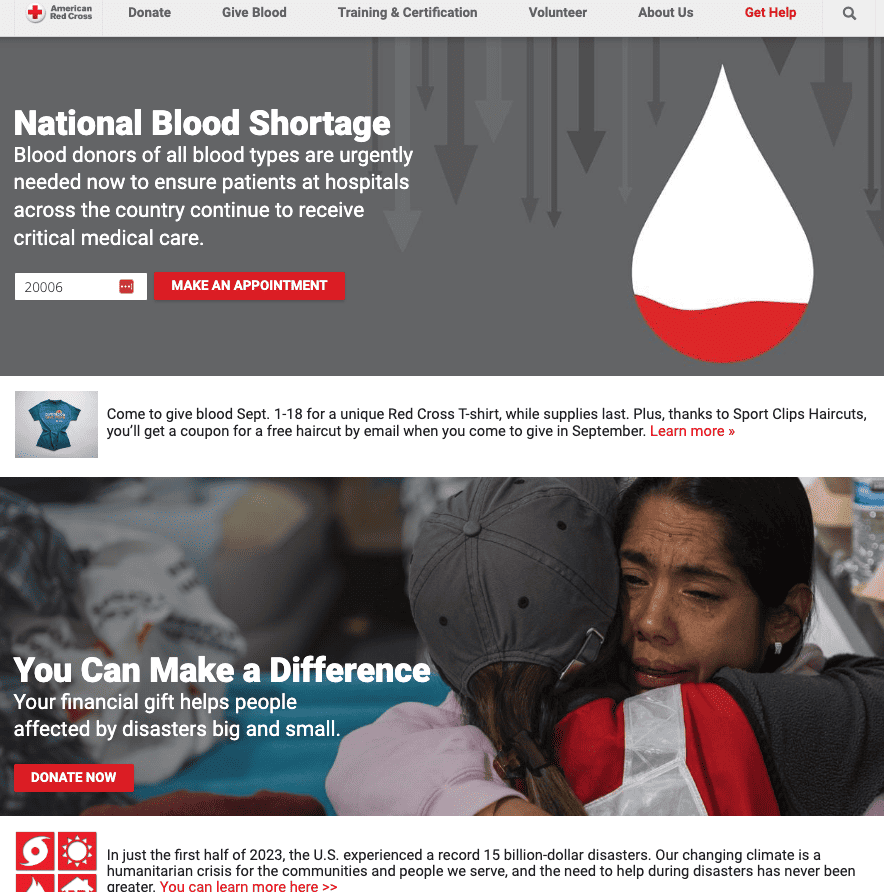Crafting the Nonprofit Digital Strategy: A Holistic Approach
In the dynamic realm of nonprofit marketing, crafting the most robust nonprofit digital strategy is pivotal. This article delves into the multifaceted components of nonprofit digital strategy and marketing, offering actionable insights that cater to the unique challenges and objectives of nonprofit organizations.
What is a Nonprofit Digital Strategy?
A nonprofit digital strategy is a comprehensive plan that leverages digital platforms to further the organization’s mission. It’s a blueprint for how a nonprofit will engage with its audience, deliver its message, and measure success in the digital landscape. This encompasses everything from social media engagement, online fundraising, content marketing, to analytics and optimization.
The Pillars of Nonprofit Digital Strategy
1. Clear Objectives and Framework
Firstly, define what success looks like. Is it increased donations, greater awareness, more volunteers, or all of the above? Establish a framework that outlines goals, target audiences, the digital channels you will use, and the key performance indicators (KPIs) for measurement.
2. Content Marketing
Content is the cornerstone of digital strategy. For nonprofits, this means storytelling that resonates with your audience’s values and emotions, encouraging them to take action. Your content should be engaging, informative, and shareable to maximize reach.
3. Engagement and Community Building
Digital marketing for nonprofits thrives on building a community. Engage with your audience through regular updates, interactive content, and fostering discussions around causes that align with your mission.
4. Digital Fundraising
Online giving is on the rise, and a digital strategy must include a seamless process for donations. Highlight the impact of contributions with success stories and transparent reporting.
5. Analytics and Adaptation
Utilize analytics to track your digital strategy’s performance. Understand what works and what doesn’t, and be ready to adapt your approach for continuous improvement.
5 P’s of Nonprofit Marketing
Product: Know the ‘product’ you offer, be it a cause, a service, or a community benefit.
Price: Determine ‘price’ not in terms of cost but in value — the emotional, social, or community impact of supporting your cause.
Place: In the digital space, ‘place’ refers to where your content lives — your website, social media, email newsletters, and so on.
Promotion: How you promote your cause via storytelling, campaigns, and calls to action.
People: Center your strategy around the people — your audience, supporters, and community.
Example of Digital Strategy Success
An example of a successful digital strategy might be a campaign that utilizes a mix of targeted social media advertising, influencer partnerships, and email marketing to boost an end-of-year fundraising drive, resulting in a 30% increase in donations from the previous year.
Digital vs. Social Strategy
While a digital strategy encompasses all online activities, a social media strategy zeroes in on platforms like Facebook, Twitter, and Instagram. It’s about engaging users in a two-way conversation, not just broadcasting a message.
The SEO Angle
For SEO, nonprofits should focus on keywords related to their cause, optimizing their website and content for search engines with these quick SEO wins to increase visibility to potential supporters.
Final Thoughts
The intersection of technology and social good is an exciting frontier. A well-crafted digital strategy for nonprofits not only amplifies the message but also harnesses the power of community, driving meaningful change.
Takeaways for Nonprofit Marketers:
- Define clear digital objectives aligned with your mission.
- Craft compelling content that tells your story.
- Engage actively with your online community.
- Streamline your digital fundraising efforts.
- Use analytics to refine and optimize your strategy.
Embrace the digital space with a human touch, and watch as your nonprofit’s impact grows exponentially.








